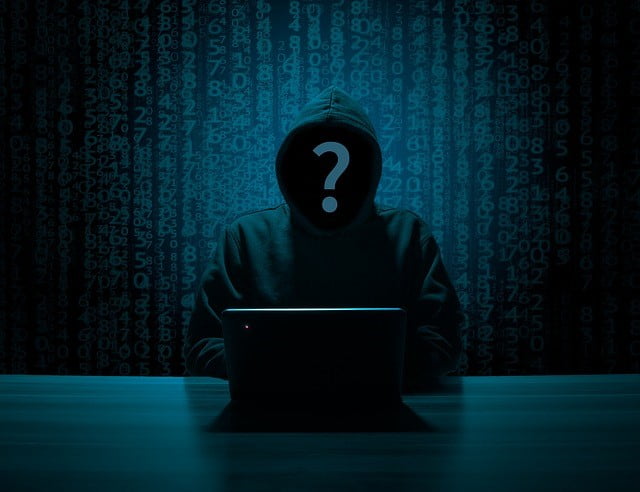Introduction
The Deprivation of Liberty Safeguards (DoLS) is a crucial aspect of the UK’s mental health care and social services system. Implemented to ensure the protection and safeguarding of vulnerable individuals, DoLS is a subject of interest for health care professionals, caregivers, and family members alike. This article aims to provide a comprehensive understanding of DoLS, its legislative framework, eligibility criteria, powers, and a balanced discussion of its pros and cons.
Legislation
DoLS is part of the Mental Capacity Act (MCA) 2005 and was introduced in England and Wales by the Mental Health Act 2007. The purpose of DoLS is to ensure that individuals who lack mental capacity and require care or treatment in a care home or hospital setting are not unlawfully deprived of their liberty. The legislative framework is designed to protect the rights and freedoms of vulnerable individuals while maintaining the necessary care and support they require.
Who Can Apply for a DoLS?
A DoLS authorisation can be applied for by a managing authority, which is either the care home or hospital where the person is being cared for. The person in question must meet specific eligibility criteria, as outlined below:
- Age: The individual must be aged 18 or above.
- Mental Capacity: The person must lack mental capacity to make decisions about their care and treatment. This lack of capacity could be due to conditions such as dementia, learning disabilities, or brain injuries.
- Best Interests: The proposed care or treatment must be in the person’s best interests to prevent harm to themselves or others.
- Continuous Supervision and Control: The individual must be under continuous supervision and control within the care setting.
- Not Free to Leave: The person must not be free to leave the care setting without authorisation.
How to Apply for a DoLS?
To apply for a DoLS authorisation, the managing authority (care home or hospital) must submit a request to the supervisory body, which is usually the local authority or health board. The supervisory body will then assess the application by arranging for six assessments to be carried out by qualified professionals, such as Best Interests Assessors and Mental Health Assessors. These assessments will determine if the individual meets the eligibility criteria and if the deprivation of liberty is necessary and proportionate.
Can a local authority apply for a DoLS?
Yes, a local authority can apply for a Deprivation of Liberty Safeguards (DoLS) authorisation. In most cases, the local authority acts as the supervisory body responsible for considering and processing DoLS applications. However, there are scenarios in which the local authority may also be the managing authority, particularly when they are directly responsible for the care and management of a supported living arrangement or shared lives scheme.
In such cases, the local authority would need to apply for a DoLS authorisation for an individual who meets the eligibility criteria, just as a care home or hospital would. The application would be submitted to another local authority or health board acting as the supervisory body to ensure an impartial assessment.
It is essential for local authorities to be aware of their responsibilities in relation to DoLS, both as managing authorities and supervisory bodies, to ensure the appropriate care and protection of vulnerable individuals in their care.
Powers Provided by DoLS
DoLS provides legal protection for care homes and hospitals when they need to deprive a person of their liberty to provide care or treatment. The safeguards ensure that the individual’s human rights are protected, as well as those of their family members. Key powers include:
- Legally authorized deprivation of liberty: A DoLS authorisation allows care providers to lawfully deprive an individual of their liberty, ensuring that they do not breach the person’s rights under Article 5 of the European Convention on Human Rights.
- Regular reviews and monitoring: The supervisory body is required to conduct regular reviews of the DoLS authorisation, ensuring that the deprivation of liberty remains necessary and proportionate.
- Right to challenge: The individual, their representative, or an Independent Mental Capacity Advocate (IMCA) has the right to challenge a DoLS authorisation in the Court of Protection.
Pros of DoLS
- Human rights protection: DoLS ensures that the human rights of vulnerable individuals are upheld by providing a legal framework for the deprivation of liberty.
- Best interests: The process guarantees that the care and treatment provided are in the best interests of the individual.
- Safeguarding: DoLS serves as a crucial safeguard against potential abuse or neglect within care settings.
Cons of DoLS
- Bureaucracy and delays: The application and assessment process for DoLS can be time-consuming and bureaucratic, leading to delays in care provision and decision-making.
- Complexity: The process can be complex and difficult to navigate for care providers and family members, creating confusion and potential misunderstandings.
- Resource-intensive: The assessments and reviews required for DoLS can be resource-intensive, placing additional strain on an already stretched health and social care system.
What legislation is going to replace DoLS?
The legislation set to replace the Deprivation of Liberty Safeguards (DoLS) is called the Liberty Protection Safeguards (LPS). This new framework was introduced by the Mental Capacity (Amendment) Act 2019 and was initially planned to come into force in October 2020. However, its implementation has been delayed, and the current expected implementation date is Autumn 2023 at the earliest.
The LPS aims to address the shortcomings of the DoLS system, providing a more streamlined and efficient process while continuing to protect the rights of vulnerable individuals. Some key benefits of the LPS include:
- Broader application: Unlike DoLS, which only applies to care homes and hospitals, the LPS will apply to a wider range of settings, including supported living arrangements, shared lives schemes, and domestic settings.
- Age reduction: While DoLS applies to individuals aged 18 and over, the LPS will lower the age threshold to 16, providing protection for a wider group of vulnerable individuals.
- Simplified process: The LPS aims to simplify the authorisation process, reducing bureaucracy and administrative burden on health and social care providers. The new system will involve fewer assessments, which will be more streamlined and integrated into existing care planning processes.
- Pre-authorisation review: The LPS introduces a new requirement for a pre-authorisation review, ensuring that any proposed care arrangements meet the necessary criteria before an authorisation is granted.
- Renewal system: The LPS will implement a more straightforward renewal system, with an initial authorisation lasting up to 12 months, followed by a second authorisation for up to 12 months, and subsequent authorisations lasting up to 36 months.
- Improved oversight: Under the LPS, an Approved Mental Capacity Professional (AMCP) will be involved in cases where the individual objects to the proposed arrangements or where it is deemed necessary due to the person’s circumstances.
By implementing the LPS, the UK government aims to address the limitations of the DoLS system, making it easier for health and social care providers to navigate the process and ensuring that vulnerable individuals receive appropriate care and support while protecting their rights.
Conclusion
The Deprivation of Liberty Safeguards is a critical component of the UK’s mental health care and social services system, providing legal protection and ensuring that the human rights of vulnerable individuals are upheld. While the process has its drawbacks, such as complexity, bureaucracy, and resource intensiveness, the overall aim of safeguarding the rights and welfare of those lacking mental capacity remains paramount. It is crucial for care providers, family members, and professionals to familiarize themselves with DoLS to ensure the well-being of individuals within their care.








